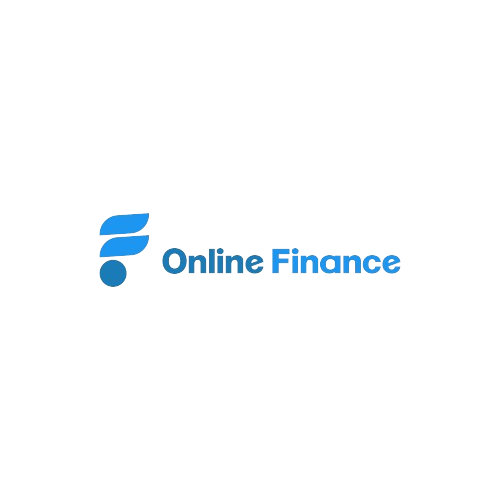Last updated:
Top Online Savings Accounts of 2024
Maximize Your Savings Potential with Competitive High-Yield Accounts
Expert Verified
Trusted & Protected
Top-Tier Options
Savings Accounts: A Key to Financial Growth
A savings account is more than just a place to store your money, it's a foundational tool for building your financial future. Offered by banks and credit unions, these accounts provide a secure environment for your funds while paying you interest over time. The bank utilizes your deposits to offer loans and other financial services, and in return, you earn interest, helping your money grow passively.
With federal insurance protection, savings accounts are a low-risk option ideal for short-term goals, emergency funds, or simply keeping your money accessible yet productive. At Bank-Compare.com, we help you navigate the best options to ensure your savings work harder for you.
Key Terms to Know When Choosing a Savings Account
Navigating the world of savings accounts can be simplified by understanding some essential terms:
Interest Rate: This is the percentage the bank pays you for keeping your money in the account. A higher interest rate means more earnings over time.
Compound Interest: This refers to earning interest on both your initial deposit and the accumulated interest from previous periods. Compounding can significantly boost your savings growth.
Annual Percentage Yield (APY): APY represents the real rate of return earned on your savings, taking into account the effect of compounding interest over a year. It’s a crucial figure for comparing different accounts.
Banks on Our Site Provide Strong Savings Solutions.
Maximize Your Savings with High APY Accounts
Did you know that high-yield savings accounts can offer up to 20x the interest rate of traditional accounts? Find out how to grow your money faster by choosing accounts with the best Annual Percentage Yields (APY).
Security and Peace of Mind with Federal Insurance
All savings accounts featured on Bank-Compare come with federal insurance, meaning your money is protected up to $250,000. Discover secure options for growing your savings with peace of mind.
Start Small, Earn Big with Compounded Interest
Even a small deposit can grow significantly with compounded interest. The earlier you start, the more you benefit! Explore accounts designed to maximize your savings through daily or monthly compounding.
Why High-Yield Savings Accounts Matter in 2024
In today’s financial landscape, high-yield savings accounts have become a game-changer for savvy savers. Traditional savings accounts often offer minimal interest rates, barely keeping up with inflation. High-yield accounts, however, provide significantly higher APYs, allowing your savings to grow faster without additional effort.
At Bank-Compare.com, we curate a list of top-performing savings accounts that offer competitive rates, low fees, and user-friendly features. Whether you’re saving for a major purchase, building an emergency fund, or planning for the future, choosing the right account can make a substantial difference.
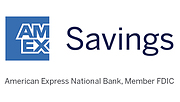
American Express® Savings Accounts
Member FDIC
APY
4.00%
With $0 min balance for APY
No minimum balance and no monthly fees.
at American Express Bank

SoFi Bank Savings Accounts
Member FDIC
APY
4.60%
With $0 min. balance for APY
Earn up to $250 with direct deposit. Terms apply.
at SoFi Bank
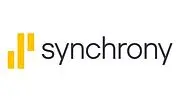
Synchrony Bank Savings Accounts
Member FDIC
APY
4.30%
With $0 min. balance for APY
No minimum balance and no monthly fees.
at Synchrony
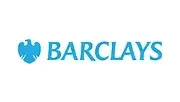
Marcus By Goldman Sachs
Member FDIC
APY
4.80%
With $0 min. balance for APY
No minimum balance and no monthly fees.
at Barclays

American Express® Savings Accounts
Member FDIC
APY
4.00%
With $0 min balance for APY
No minimum balance and no monthly fees.
at American Express Bank

SoFi Bank Savings Accounts
Member FDIC
APY
4.30%
With $0 min balance for APY
No minimum balance and no monthly fees.
at SoFi Bank

Synchrony Bank Savings Accounts
Member FDIC
APY
4.30%
With $0 min balance for APY
No minimum balance and no monthly fees.
at Synchrony

Barclays Online Savings Accounts
Member FDIC
APY
4.80%
With $0 min balance for APY
No minimum balance and no monthly fees.
at Barclays
Making the Most of Your Savings with Bank-Compare.com
Selecting the ideal savings account involves considering factors like interest rates, fees, accessibility, and customer service.
Here’s how Bank-Compare.com assists you:
Comprehensive Comparisons: We provide detailed comparisons of various savings accounts, highlighting the pros and cons of each to help you make an informed decision.
Up-to-date Information: Our team continuously updates rates and account features to ensure you have the most current information at your fingertips.
Expert Insights: Access articles and guides from financial experts that offer tips on saving strategies, maximizing interest earnings, and avoiding common pitfalls.
What You Need to Consider When Choosing the Best Savings Account
How Competitive is the Bank’s APY?
Opting for accounts with higher APYs, ideally around 5%, can yield more substantial returns than the national average of 0.57%. For instance, a 5% APY on a $10,000 deposit would provide $500 in annual earnings, compared to just $40 from a 0.40% APY.
Why Choose a Dedicated Account for Savings?
High-yield savings accounts maximize interest potential compared to regular checking accounts. These accounts are ideal for emergency funds and long-term savings, helping you grow your funds without incurring monthly fees.
How Often Can Interest Rates Change?
Interest rates, typically stable for months, can fluctuate due to market conditions and Federal Reserve adjustments. Monitoring rates regularly can help ensure your savings continue to grow at the best possible return.
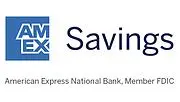
American Express National Bank: Savings Account
Additional Benefits:
- No minimum balance and no monthly fees.
- Strengthened by the service and reliability of American Express.
- Easy access to your money and 24/7 world-class customer service.
- Manage your account online with simple transfers and recurring deposits.

SoFi: Savings Accounts
Additional Benefits:
- Earn up to $300, depending on your direct deposit amount.
- Create Vaults dedicated to specific savings goals.
- Use AutoSave to automatically put part of your paycheck into savings.
- With Roundups, all of your debit card purchases are automatically rounded up to the next dollar and deposited into your savings Vault.

Synchrony Bank: Savings
Additional Benefits:
- Savings products with competitive rates, no required minimum balances, and no monthly fees.
- Save easy with Synchrony Bank. Our app makes it a snap to bank anywhere; and control accounts from your smartphone or tablet.
- Our App Makes It A Snap To Bank Anywhere and Control Accounts From Your Smartphone Or Tablet.

Barclays : Online Savings Account
Additional Benefits:
- An award-winning account with great rates, no minimum balances or monthly maintenance fees.
- Enjoy a rate greater than 5X the national average.
- Online transfers to and from other banks.
- Direct deposit to make saving simple and easy.
Why Open a High-Yield Savings Account?
Opening a high-yield savings account offers a practical way to earn passive income, helping you reach financial goals effortlessly. While interest is taxable, a high APY provides a reliable path to increase your wealth over time.
Compared to certificates of deposit (CDs), which often lock funds for set terms, savings accounts offer liquidity and flexibility. With up to six monthly withdrawals allowed without penalties, savings accounts provide easy access to your funds when you need them.
Additionally, these accounts are federally insured up to $250,000 per depositor through the NCUA or FDIC, providing a secure way to safeguard your savings.
Final Takeaway
High-yield savings accounts are an excellent choice for safe, accessible, and profitable savings. Top institutions, including American Express National Bank, Synchrony Bank, Marcus by Goldman Sachs, SoFi, and Capital One 360, offer some of the most competitive rates, with no monthly fees and robust security measures.
These accounts also feature convenient ATM access, seamless online services, and strong customer support, catering to both short-term needs and long-term financial goals. Keeping up with APY trends can help you make the most of these high-performing savings accounts, making each dollar you save work harder.
Frequently Asked Questions (FAQs)
Most savings accounts do not have monthly fees, especially high-yield online savings accounts. However, some traditional banks may charge a small monthly fee, often ranging from $5 to $10. Many banks offer ways to waive these fees, such as maintaining a minimum balance or setting up direct deposits. Always check the account terms to understand any potential fees and how to avoid them.
Yes, savings accounts at FDIC-insured banks and NCUA-insured credit unions are federally protected. The insurance covers deposits up to $250,000 per depositor, per institution, for each account ownership category. This means that even if the bank or credit union fails, your money is protected up to the insured limit, making savings accounts a safe option.
It’s recommended to keep three to six months’ worth of living expenses in an emergency fund within a savings account. This ensures quick access to funds if unexpected expenses arise, such as medical bills or car repairs. For additional savings, consider other investment options that may offer higher returns over the long term.
Yes, the interest earned on savings accounts is considered taxable income. Each year, your bank will provide a 1099-INT form if you earn $10 or more in interest, which you’ll need to report on your tax return. Even if the amount is less than $10, it is still considered taxable, so be sure to include it in your tax filings.
A savings account is designed for storing money and earning interest, ideal for building an emergency fund or saving toward future goals. Checking accounts, on the other hand, are designed for everyday transactions, like paying bills and making purchases. Checking accounts typically do not earn interest, while savings accounts do, making them complementary tools for managing personal finances.


